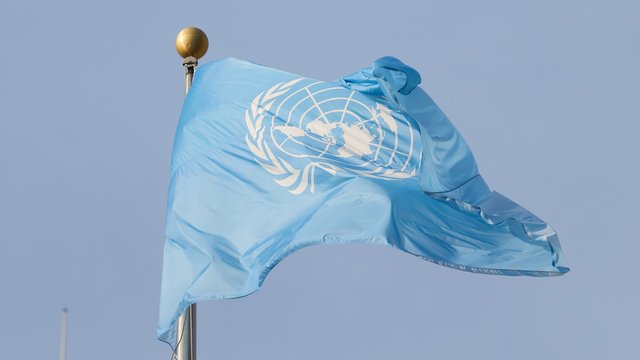UN Commission confirms findings of its investigation following visit to Ukraine

Members of the United Nations (UN) Independent International Commission of Inquiry into Violations in Ukraine concluded, following a visit from November 2-6, that short-range drone attacks on numerous Ukrainian settlements along the right bank of the Dnieper River constituted crimes against humanity in the form of murder and forcible displacement of the population.
According to a press release issued by the commission following the visit, deportations and displacement of civilians from occupied areas of the Zaporizhia region are also classified as war crimes.
" Starting with violations of international human rights and humanitarian law perpetrated by Russian authorities, they include indiscriminate and disproportionate attacks with explosive weapons, causing civilian casualties and destruction. Such attacks notably affected civilian objects with special protection, such as medical facilities. The Russian armed forced often failed to take precautions to avoid harming civilians. The Commission also found that Russian authorities violated international human rights and humanitarian law by spreading terror among civilians, using short-range drones," the press release states.
The Commission also found that the Russian armed forces and authorities have committed a number of war crimes against the civilian population, civilian infrastructure and Ukrainian armed forces personnel. "These include: the displacement and deportation of children and adult civilians; attacks on the civilian population and infrastructure; deliberate killings of civilians; killings and maiming of prisoners of war or deserters; torture, rape and other forms of sexual violence, including its use as a form of torture; excessive accidental deaths and injuries, as well as damage caused by attacks on Ukraine's energy infrastructure," the report said.
The Commission also concluded that the Russian authorities committed crimes against humanity in the form of torture, enforced disappearances, murders and forcible displacement of the population. These crimes were committed as part of a large-scale and systematic attack on the civilian population in accordance with a state policy. "As a result of these violations and crimes, thousands of people have died, many have been injured, maimed, lost loved ones, homes, property and livelihoods. The conflict has destroyed life plans, separated families and destroyed cultural values. The pain and trauma caused by a war of this magnitude will leave deep scars for generations to come," the press release states.
As an independent and impartial body, the Commission has also investigated violations committed by the Ukrainian authorities. "The Ukrainian authorities have been found responsible for certain violations of human rights and humanitarian law, including indiscriminate attacks. In some cases, arbitrary arrests and detentions, torture, ill-treatment and enforced disappearances of individuals accused of collaboration were recorded. The Commission also examined other alleged violations committed by the Ukrainian authorities, but was unable to complete the relevant investigations due to the lack of access to the territories, risks to the safety of witnesses and the lack of responses from the Russian side," the document states.
The visit took place shortly after the presentation of the Commission's report to the UN General Assembly on October 27, 2025, which found that the Russian authorities carried out forced evictions, deportations and displacements of Ukrainian civilians as part of systematic and coordinated actions.
During their visit to Ukraine, the Commission’s Chairman, Eric Mösse, and its members, Pablo de Greif and Vrinda Grover, met with representatives of the Ministry of Foreign Affairs and the Prosecutor General’s Office, the Commissioner of the Verkhovna Rada, as well as the diplomatic corps and civil society organizations. The Commissioners also spoke with victims of torture.
Since its establishment in 2022, the Commission has visited Ukraine 26 times, and has also made working trips to Georgia, Estonia, the Netherlands and Poland. It is reported that the Commission has not had the opportunity to visit Ukraine for over a year, so the visit provided an opportunity to take stock of the work done since the first mandate came into force.
It is reported that the evidence collected, including the identification of individuals and legal entities, will be used in current and future legal proceedings.
"The Members of the Commission have always promoted a broad notion of accountability including criminal justice, as well as other rights of victims. Therefore, measures of rehabilitation, including mental health and psychosocial support, are essential. The Commission strongly endorses comprehensive reparations programs for victims, distinct from national reconstruction projects, which in the case of an international conflict should be paid for by the aggressor state; the satisfaction of the right to truth, including the resolution of cases of missing persons; and also guarantees of non-recurrence," the press release said.



